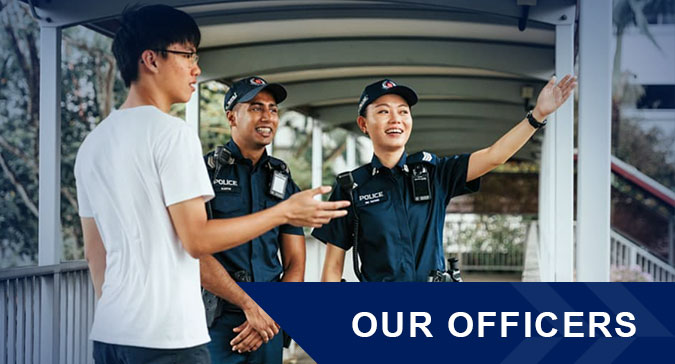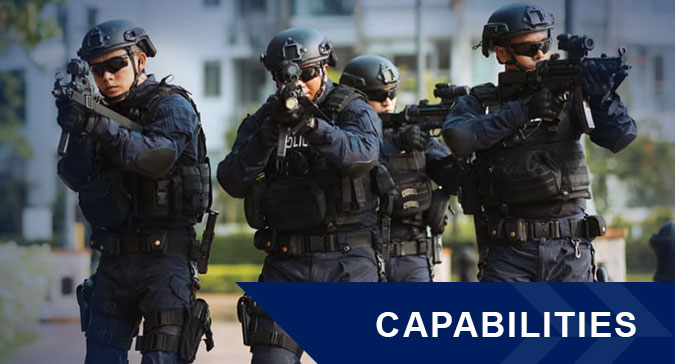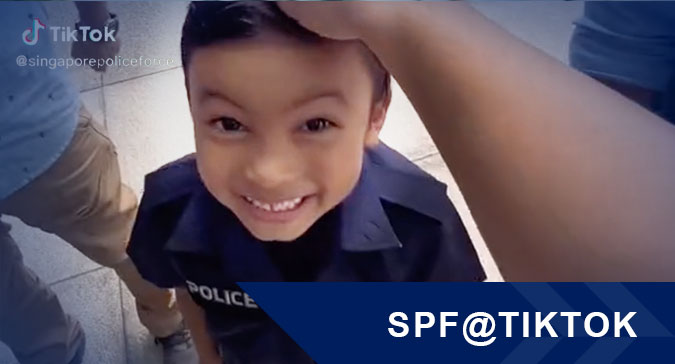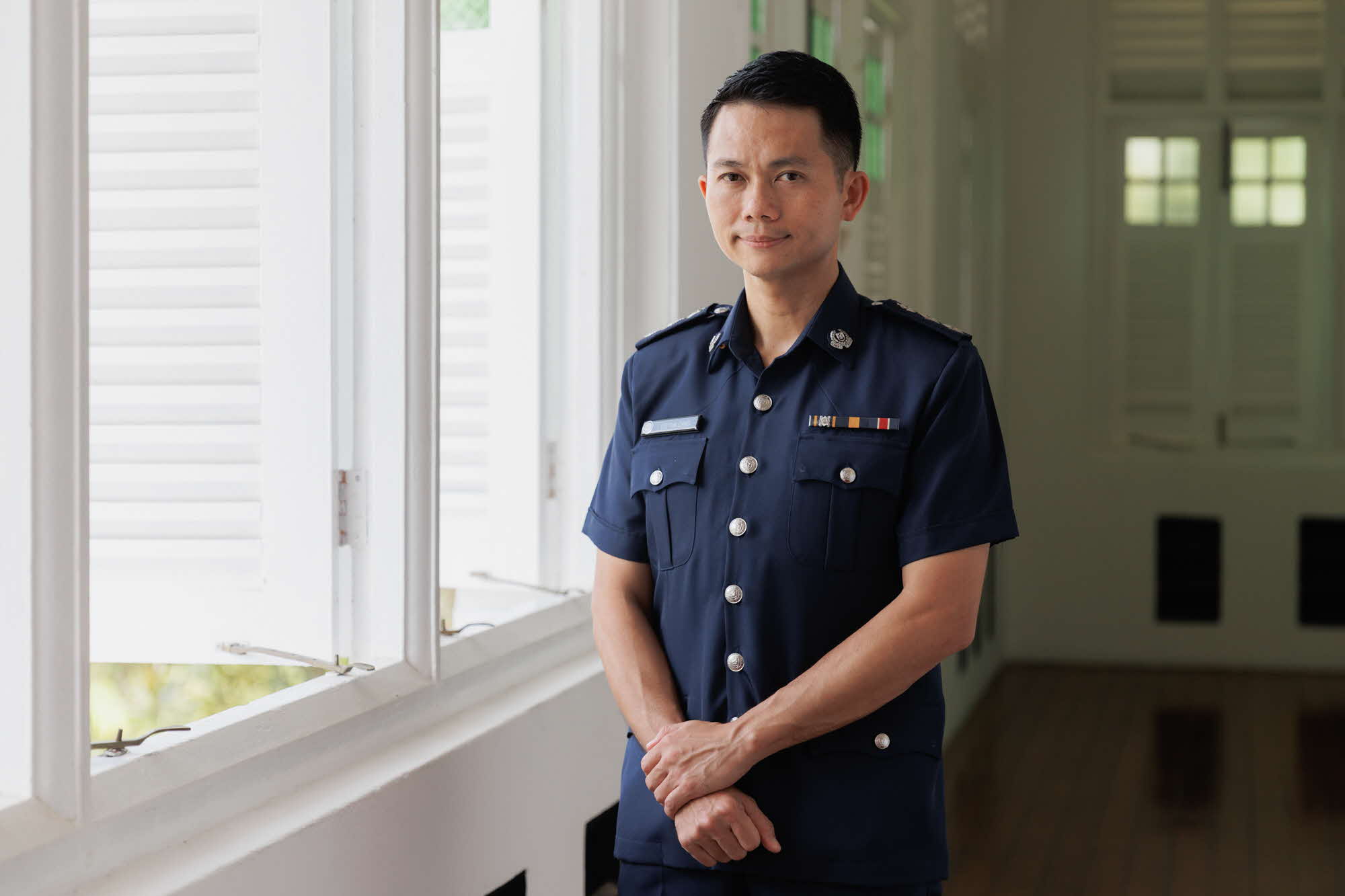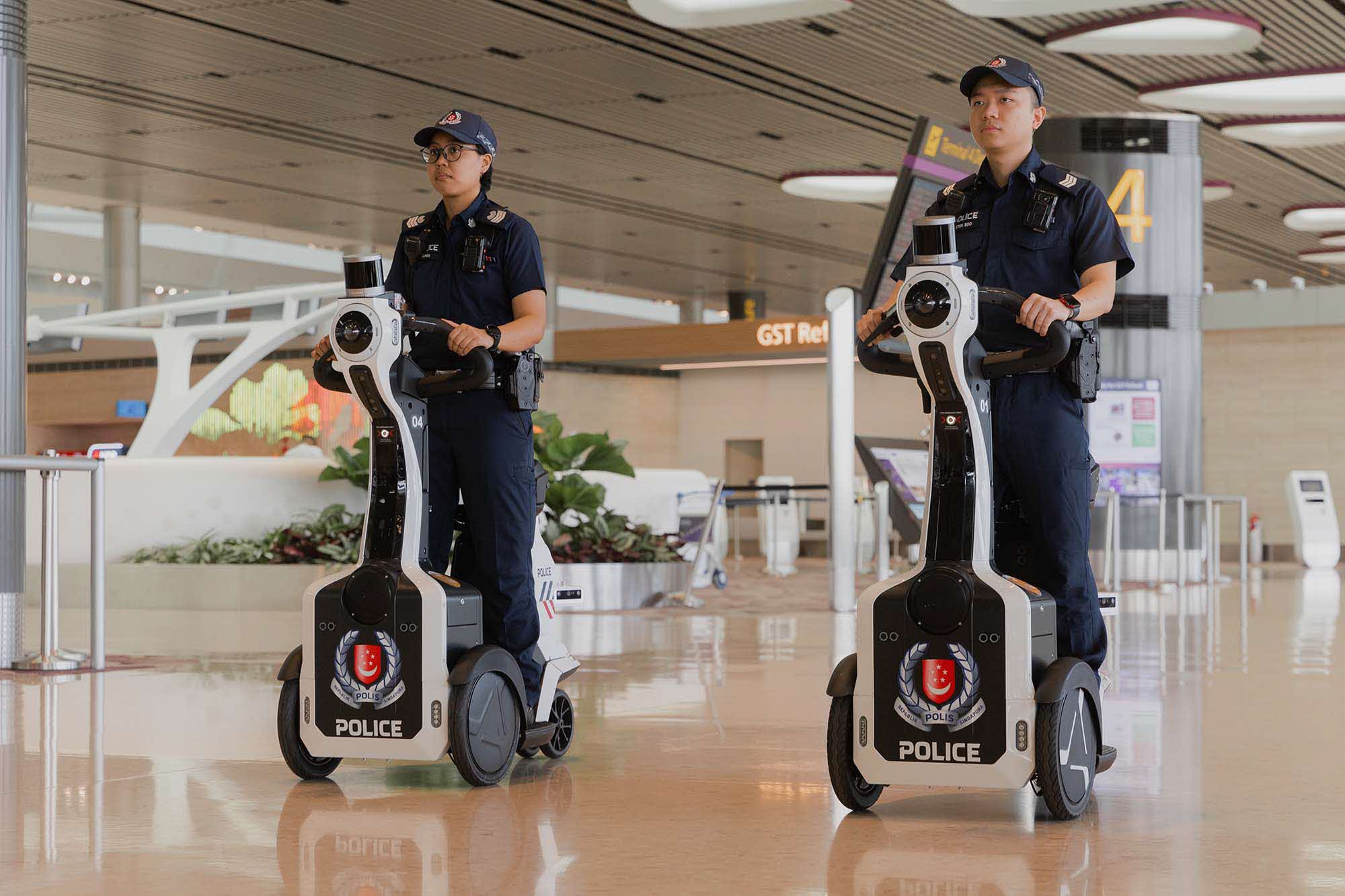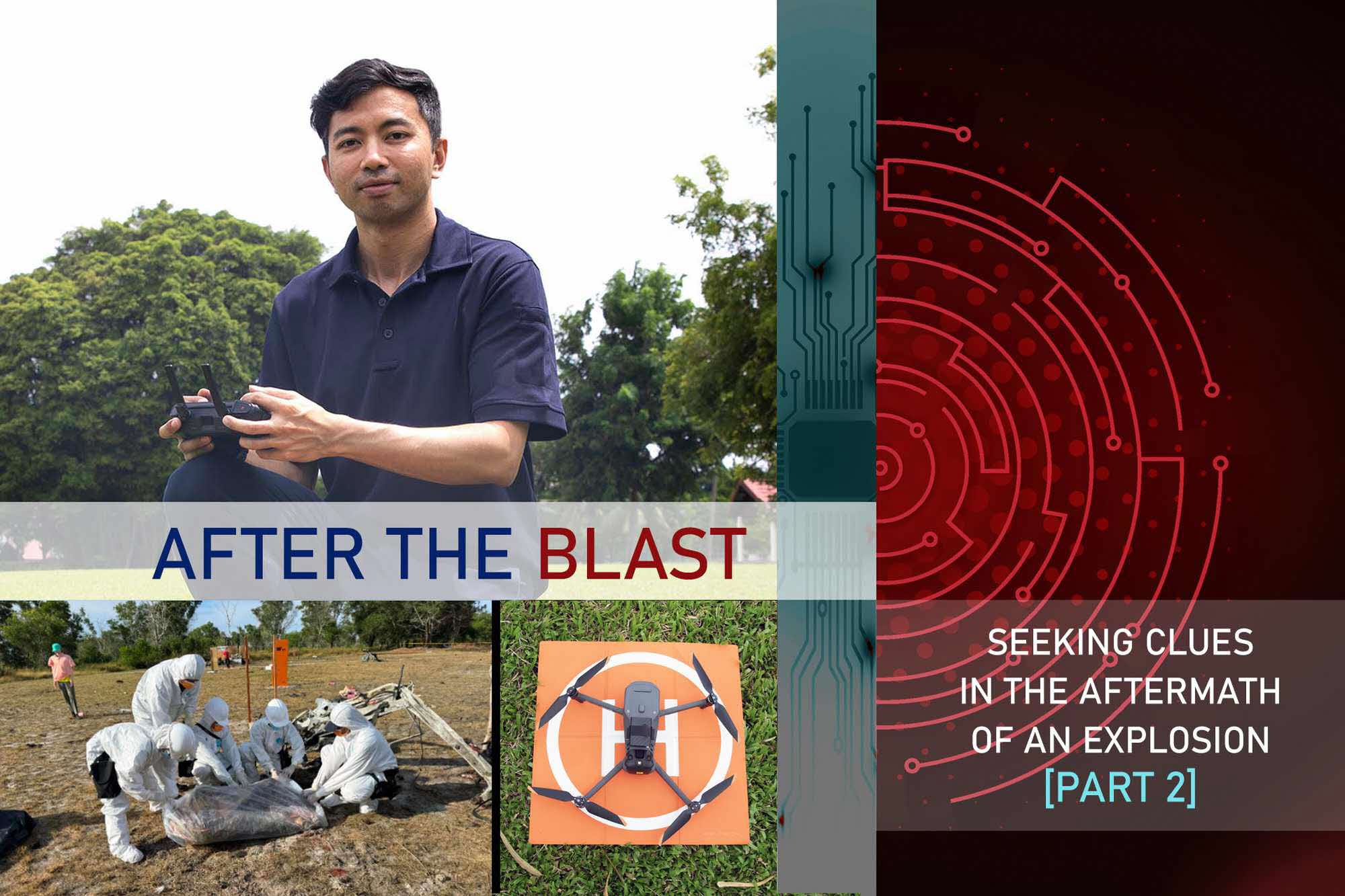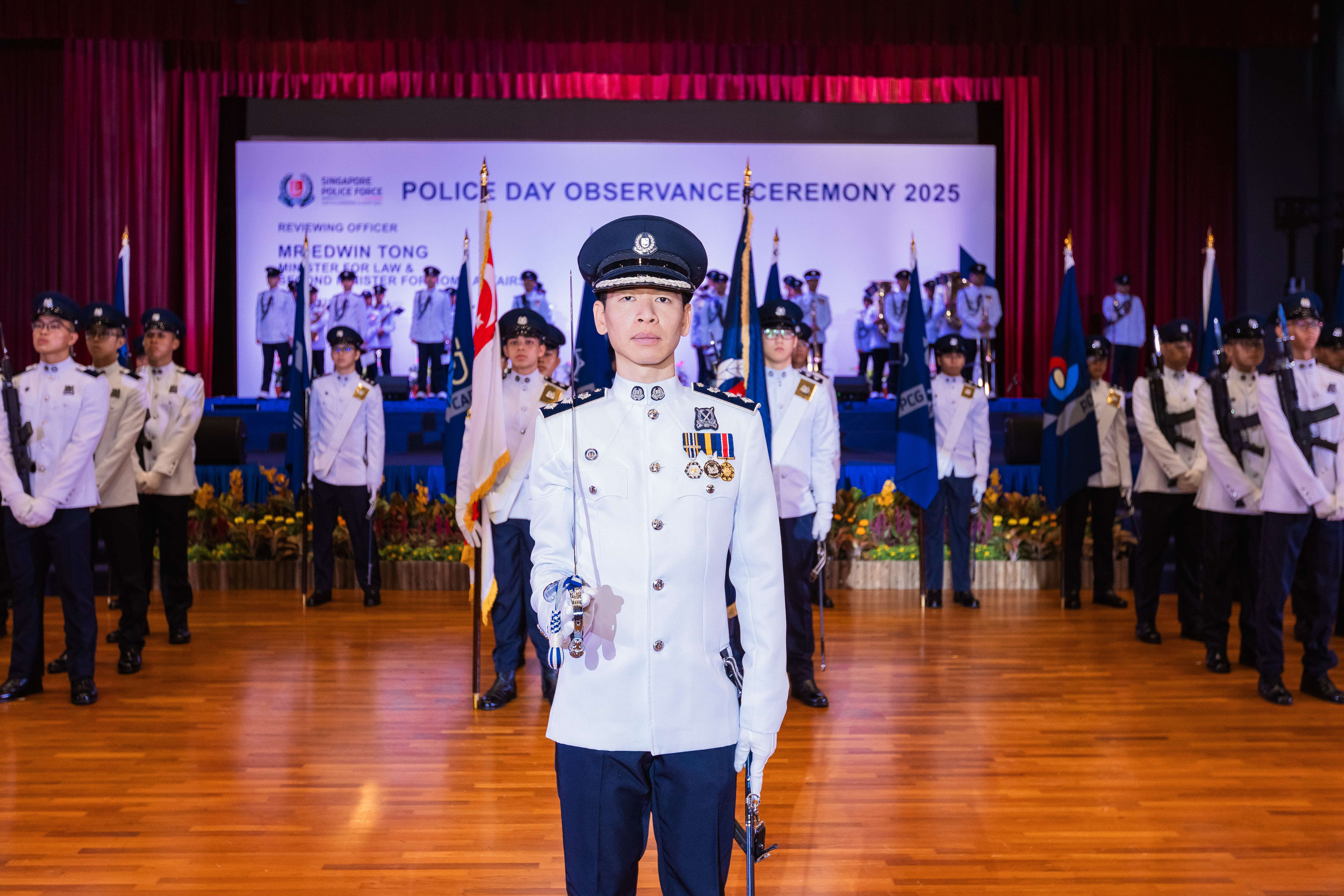ASP Kelvin Tan of the Specialised Crime Branch shares the gritty reality of investigating cases involving vice and sex trafficking.
By: Domnic Dass
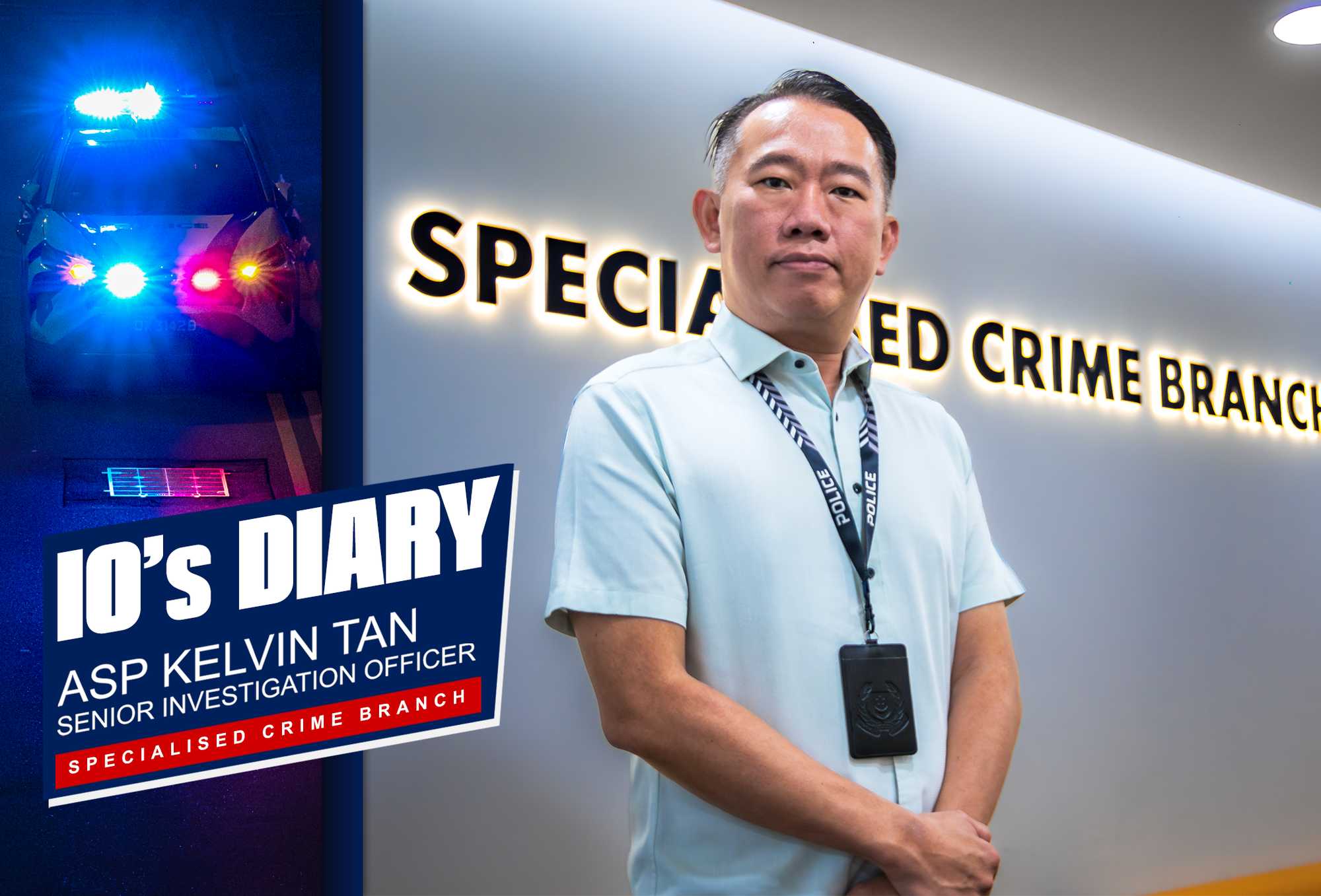
I was filled with anticipation as I took the elevator up to the office of the Specialised Crime Branch (SCB). As I waited to meet Assistant Superintendent of Police (ASP) Kelvin Tan, I recalled what I’d heard about him – a seasoned Senior Investigation Officer (SIO) with over 27 years of anti-vice expertise.
ASP Tan arrived promptly, exuding quiet confidence with his tall stature and keen eyes. He greeted me warmly with a firm handshake and remarked, “This is the first time I’m discussing the work we do, but I’m ready.”
Can you share about your journey with the Police and your current role and responsibilities?
I started my career in May 1991 at 16 as a constable in the Singapore Police Force (SPF), I was inspired to join the SPF by my father, who served as an officer with the Volunteer Special Constabulary, and also my peers who had also embarked on their careers with the SPF.
After various postings, I became a detective in the Anti-Vice Branch of the Criminal Investigation Department (CID) in March 1997, earning the distinction of being the youngest detective in the branch.
In July 2010, my career took a new direction with the formation of the SCB within the CID. The SCB primarily investigates crimes related to gambling, vice and sex trafficking. The SCB currently also investigate into offences relating to the supply and consumption of child abuse material following the introduction of new offences to better combat such crimes that were passed by Parliament in May 2019.
I currently serve as the Deputy Officer-in-Charge (DOC) for the Vice and Sex Trafficking Team. My responsibilities include overseeing investigations into prostitution syndicates, sex trafficking, as well as the unlawful supply and consumption of child abuse material.
Beyond my core responsibilities, I’m one of the main trainers for the CID’s Disaster Victim Identification (DVI) team. I’m also an adjunct trainer for the Home Team Advanced Investigation Course where I share my knowledge in investigating cases involving vice and sex trafficking with fellow investigators.
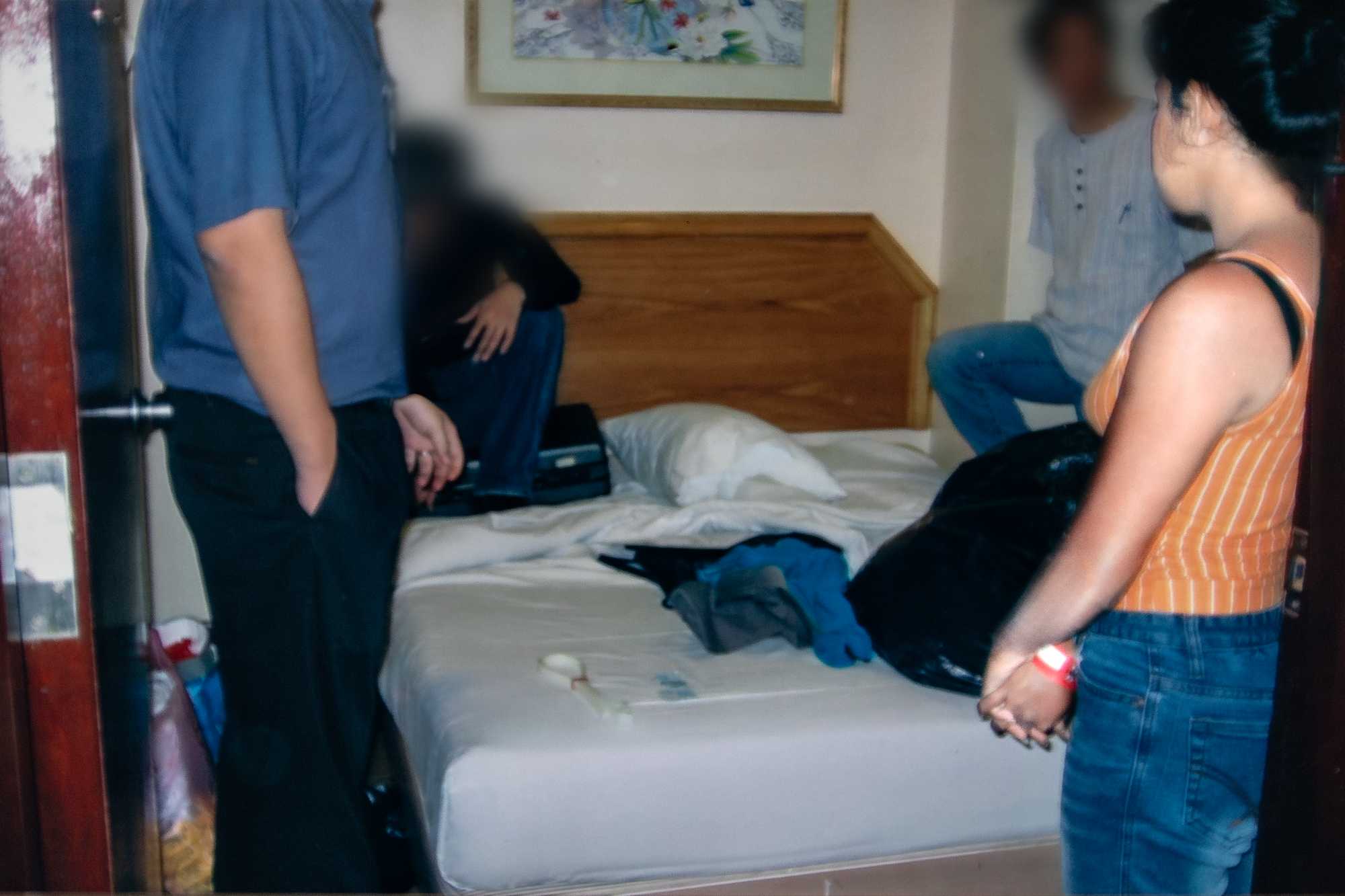
What are the challenges you face when investigating such cases?
It is paramount to consider the diverse nationalities of the victims, witnesses and suspects, and understand their culture when investigating such cases. Over time, I speak various Chinese dialects, Malay and Vietnamese and am fluent in Thai and Bahasa Indonesia, this helps in bridging the language barrier and allows me to communicate with subjects of investigations from different countries.
Today, I see a world of increasing global connectivity and the shift of vice activities to online platforms presents another significant challenge. Perpetrators often use pseudonyms and encrypted platforms to evade detection. As investigators, we need to learn and stay abreast of evolving crime trends to effectively combat such activities.
Can you share with us a prominent case that you’ve worked on?
In early June 2019, I investigated a case involving commercial sex with minor. The victim faced threats of nude photo and video dissemination by a 34-year-old male suspect. The victim was coerced by the suspect into providing sexual services to paying clients.
Despite initial challenges, I managed to get a breakthrough in the case. My team and I then conducted an ambush operation and apprehended the suspect. Upon further investigation, it was revealed that the suspect had used dual identities to target young victims for sexual exploitation. CID established about 20 victims, including several others from foreign countries. Leveraging the network SCB had established with foreign law enforcement agencies, we were able to identify some of the overseas victims in a short span of time.
Eventually, the suspect was sentenced to 31 years of imprisonment and 24 stokes of caning for more than 60 charges, which were serious sexual and intimidation related.
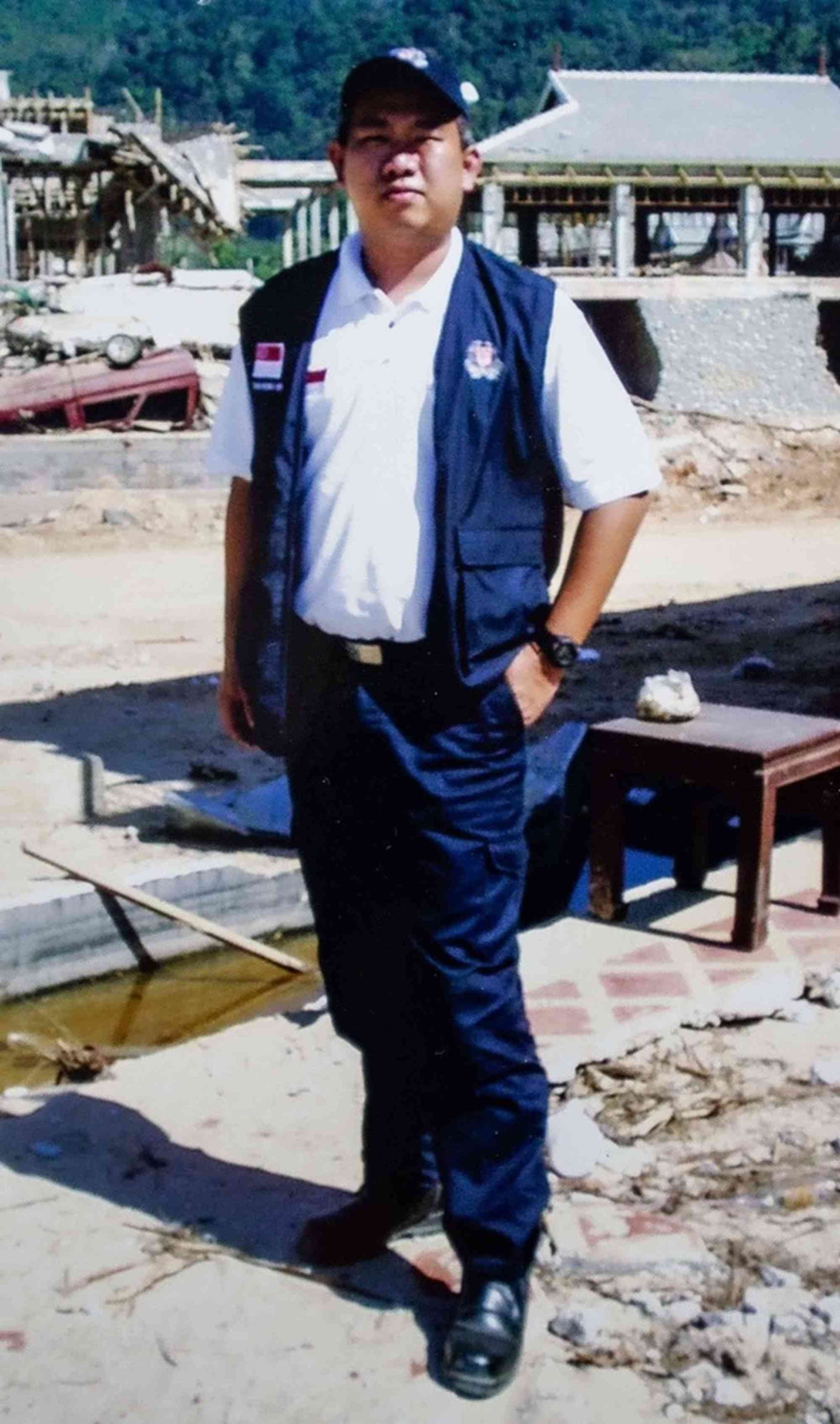
During your time in the SCB, what’s your most unforgettable moment?
That would be my time as an investigator for the DVI team. I’ve been deployed to three major disasters: the 2004 Indian Ocean earthquake and tsunami, the 2014 AirAsia QZ8501 crash and 2015 Nepal earthquake. As a member of the CID’s inaugural DVI team assignment in 2004, those experiences from the disasters that year were the most unforgettable.

“The smallest body bags were the heaviest.” – ASP Kelvin Tan
We were deployed to Phuket after the tsunami had hit on 26 December 2004, and there were multiple casualties. Once, I encountered over 2,000 bodies in a temporary mortuary, and we just put in our maximum effort to identify the victims. Despite the physical and mental challenges over the two-week deployment, I felt a strong sense of comfort knowing that I was able to do my part to bring closure to the victims’ families. Upon our return, we even underwent PPSD counselling to help us process and come to terms with the experience.

What are the most important skills and qualities that IOs must have?
Investigative work requires patience, probing skills and relentless preparation, especially when a case is headed for trial. It’s also important that officers develop mental resilience and coping strategies to deal with the emotional toll that may come with working on cases involving vice and sex trafficking.
Most importantly, we need our families’ support so that they understand the work that we do and the commitment it requires. Besides our families, the camaraderie with our fellow investigators helps in the tough work that we all do.
What would you like to share with the younger officers on your team?
Keep an open mind. Throughout my career, I’ve learnt that patience, cultural understanding, and respect are essential qualities of an investigator in the SCB.


